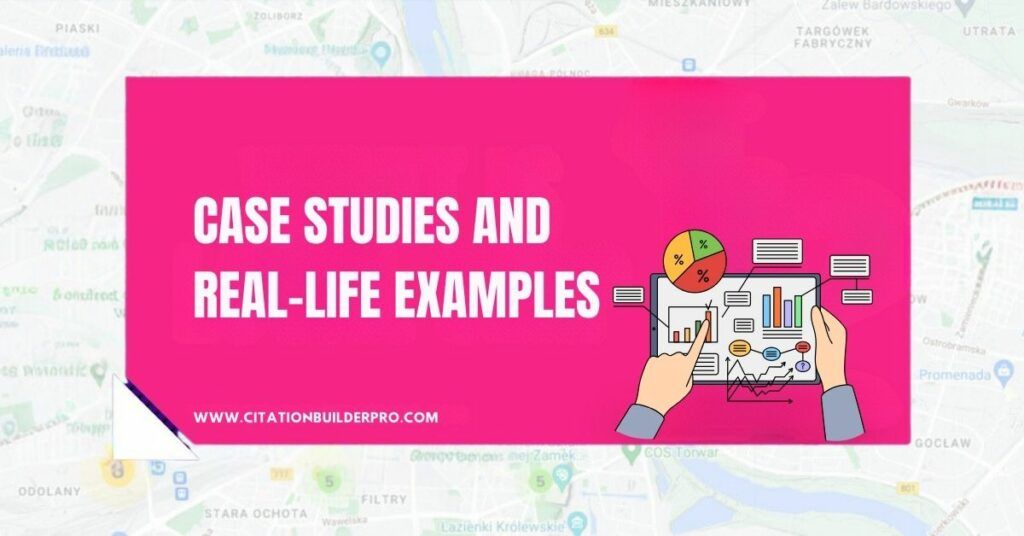Local SERP tracking is the process of monitoring how your business appears in location-specific Google search results, including the Local Pack (3-Pack), Google Maps listings, Local Citation Finder, Knowledge Panel results, and organic local rankings. It helps you understand how your visibility changes across different cities, ZIP codes, neighborhoods, and GPS coordinates especially on mobile devices, where location signals are strongest.
In today’s AI Overview powered SERP, tracking local rankings is essential for businesses that depend on local customers, foot traffic, or service-area visibility.
Table Of Contents
🔎 Why Does Local SERP Tracking Matter?
Google personalizes search results based on:
Relevance → how well your business matches the query
Distance → how close you are to the searcher
Prominence → your authority, positive reviews, citations, high-da backlinks, and online presence
Because of this, the same keyword can produce completely different results depending on:
The user’s city, ZIP code, GPS location
Whether they use mobile or desktop
Search features like Local Pack, Maps, AI Overview, Featured Snippets, and People Also Ask (PAA)
Tracking these variations helps businesses:
Understand where they appear in local search results
Improve Google Business Profile (GBP) performance
Optimize for AI Overviews and SERP features
Outperform competitors in specific locations
Increase local conversions & foot traffic
Top-ranked competitors like Keyword.com, Nozzle, STAT Search Analytics, BrightLocal, & Whitespark all emphasize the same point:
👉 Local results shift constantly because location intent shifts constantly.
🧭 How Local SERP Tracking Works
![]()
Local SERP tracking evaluates where your business appears across multiple localized factors:
1. Keywords & Search Intent
Different keyword modifiers signal different intentions:
“coffee shop near me”
“cafe in Houston”
“car wash open now”
“best salon 77002”
Even if intent is similar, Google generates different SERPs because the entity relationships differ (e.g., coffee shop, café, restaurant).
2. Custom Location Settings (City, ZIP, Coordinates)
Competitor tools like BrightLocal, and GMB Briefcase allow tracking at:
City level
Neighborhood level
ZIP/postal code level
Address or GPS coordinate level
Country & language
Multi-device (mobile + desktop)
Example locale formats (Nozzle-style entities):
Google – United States – English – City – Houston, Texas
Google – US – English – ZIP – 77002
Google – English – GPS – (29.7604° N, 95.3698° W)
This granular tracking helps businesses diagnose true local visibility.
3. Distance & Proximity
Google prioritizes businesses that are:
Physically closest to the searcher
Most relevant based on intent + proximity
Even a business with lower reviews may appear above a higher-rated competitor if it is significantly closer.
4. Geo-Location Signals (Mobile-First Ranking)
Mobile users trigger:
More “near me” SERPs
More Google Maps and Map Pack results
Higher location precision (via device GPS)
Industries like restaurants, salons, car services, retail, and home services rely heavily on these signals.
5. User Intent (Urgency, Informational, Transactional)
Examples:
| Search Query | Google Interpretation | SERP Type |
|---|---|---|
| “ATM near me” | Urgent + proximity | Local Pack + Maps |
| “bookstore near Mumbai bus stand” | Navigational | Maps + Local Finder |
| “house near railway station Mumbai” | Transactional + location | Maps + organic local results |
Understanding search intent helps businesses appear in AI Overviews, Local Packs, and more.
🛠️ Tools for Local SERP Tracking (with Google Entities)
Below is a competitor-aligned list of entities Google already recognizes. Include them for contextual relevance and AI Overview visibility:
| Tool / Entity | Why It Matters |
|---|---|
| Citation Builder Pro | Local citation management + local rank tracking + Google Business Profile (GBP) Optimization |
| LLMClicks.ai | Helps you understand how your brand appears inside AI search engines like ChatGPT, Google AI, Perplexity, and Bing. |
| Google Search Console | Shows keyword impressions and device data. |
| BrightLocal | Local rank tracking across ZIPs & neighborhoods. |
| Nozzle | Tracks locales (city, ZIP, GPS, language, search engine). |
| Keyword.com | Strong SERP feature visibility + location modifiers. |
| Whitespark | Local citation management + local rank tracking. |
| Moz Local | Local listing distribution + GBP monitoring. |
| SEMrush & Ahrefs | Keyword tracking + competitive insights. |
| GMB Briefcase | Precision-based local SERP rank tracking. |
📍 How To Track Local SERPs (Step-by-Step)
Step 1 – Choose a Local Rank Tracker
Select tools that support ZIP, city, or GPS-based tracking (BrightLocal, Nozzle, Keyword.com, GMB Briefcase).
Step 2 – Define Your Locales
Set each tracking location by:
City
ZIP Code
Neighborhood
GPS coordinates
Mobile vs desktop
Step 3 – Add Keywords With Local Modifiers
Examples:
“coffee shop near me”
“electrician in Houston 77002”
“car wash Midtown Houston”
![]()
Also add intent-based variants: open now, best, top-rated, near bus stand, etc.
Step 4 – Track SERP Features
Measure visibility for:
Google Maps rankings
Featured Snippets
Step 5 – Monitor Competitors
Track competing listings in:
Map Pack
GBP profiles
Organic results
Review sites & citations
Forums (Reddit is now a major Google entity due to Google–Reddit partnership)
Step 6 – Optimize Based on Data
Improve your rankings by:
Updating GBP
Getting local backlinks
Publishing localized content
Improving reviews and responses
This is exactly how leading tools (Citation Builder Pro, Whitespark, BrightLocal) guide users to improve local visibility.
📊 Key Local SERP Ranking Factors
These are the factors AI Overview uses to summarize “what affects local rankings”:
1. Relevance
How well your business matches the query.
2. Distance
How close the searcher is to your business.
3. Prominence
Overall authority based on:
Reviews
Citations (NAP consistency)
Local backlinks
Online mentions
Behavioral signals (clicks, interactions)
✔ Add Google Business Profile completeness score
✔ Add review velocity & keyword-rich reviews
✔ Add citation accuracy (Citation Builder Pro advantage)
📘 Strategies for Better Local Search Performance
1. Optimize Your Google Business Profile
Add categories, services, service areas
Enable messaging
Post weekly updates
Respond to all reviews (Google entity: Review)
2. Build Local Citations
Citation Builder Pro’s internal entity strength here is very high.
Ensure consistent NAP across:
Yelp
Bing Places
Apple Business Connect
YellowPages
Nextdoor
Local directories (BrightLocal list entities)
3. Earn Local Backlinks & Press
Local newspapers, blogs, chambers, colleges.
4. Create Localized Content
“Best cafés in Houston 77002”
“Electrician services near Midtown Houston”
“Guide to Google Maps ranking factors”
5. Fix On-Page SEO
Add geo entities:
City names
Neighborhoods
ZIP codes
Landmarks
Nearby locations
6. Track Competitors & Reverse Engineer
Use SERP data from:
Ahrefs
SEMrush
STAT
Nozzle
Whitespark
🧩 The Role of AI Overview (AIO) in Local SERP Tracking
Google’s AI Overview now pulls short, factual summaries from:
Entities (Google Business Profile)
Local Pack data
High-authority SEO blogs (Keyword.com, STAT, Nozzle)
Structured content with clear definitions
FAQ and HowTo schema pages
Concise expert statements
To appear in AIO, your content must include:
✔ Clear definitions
✔ Short answers
✔ Structured lists
✔ Verified entities
✔ Schema markup
✔ Internal & external citations
✔ Consistent terminology (GBP, Local Pack, Maps, etc.)
📚 Case Study Example (AIO Loves Quantified Results)

Case Study 1: Local Coffee Shop
A local coffee shop used local SERP tracking to improve its search rankings. By optimizing their GMB profile, encouraging customer reviews, and creating localized content, they saw a significant increase in local traffic and sales.
Case Study 2: Bookstore Near a Bus Stand
A bookstore near a bus stand utilized custom location settings and ZIP code targeting to attract customers. By focusing on local keywords and engaging with the community, they improved their local SERP rankings and increased foot traffic.
Case Study 3: Online Beauty and Fitness Store
An online beauty and fitness store struggled to rank in global searches. By shifting their focus to local SERP tracking and creating localized content, they gained visibility in local searches and attracted more customers.
Case Study 4: Local Marketing Agency
A local marketing agency used advanced local SERP tracking strategies to help their clients improve their local search rankings. By conducting regular local SEO audits, leveraging local backlinks, and utilizing email marketing, they achieved significant results for their clients.
Frequently Asked Questions (FAQs)
Q1: What is Local SERP?
Ans: Local SERPs are Google search results tailored to the user’s location, displaying the Local Pack, Google Maps, Local Finder, and relevant nearby businesses.
Q2: How do I track Local SERPs?
Ans: Use local rank trackers to monitor keywords across cities, ZIP codes, GPS coordinates, and devices.
Q3: Why does distance matter?
Ans: Google prioritizes businesses physically closest to the searcher when intent suggests proximity.
Q4: What tools help with local tracking?
Ans: Citation Builder Pro, BrightLocal, Whitespark, Moz Local, and GMB Briefcase.
Q5: What affects Local Pack rankings?
Ans: Relevance, distance, prominence, reviews, citations, and GBP optimization.
Q6: Can online-only businesses skip local tracking?
Ans: Yes unless a specific region generates disproportionate demand.
📍 Want Higher Local Rankings? Start Tracking Like a Pro.
See your true Local Pack, Google Maps & ZIP-level rankings — then fix what’s blocking visibility.
🚀 Start ZIP-Level Tracking — Free TrialHow useful was this post?
Average rating 5 / 5. Votes: 1
No votes so far! Be the first to rate this post.

I am the founder of Citation Builder Pro. I have been in the SEO and content marketing industry for 15 years and have a lot of experience in public relations and online marketing.
I started Citation Builder Bro to help businesses of all sizes create high-quality citations for their websites. My team and I are dedicated to providing our clients with the best possible services.



